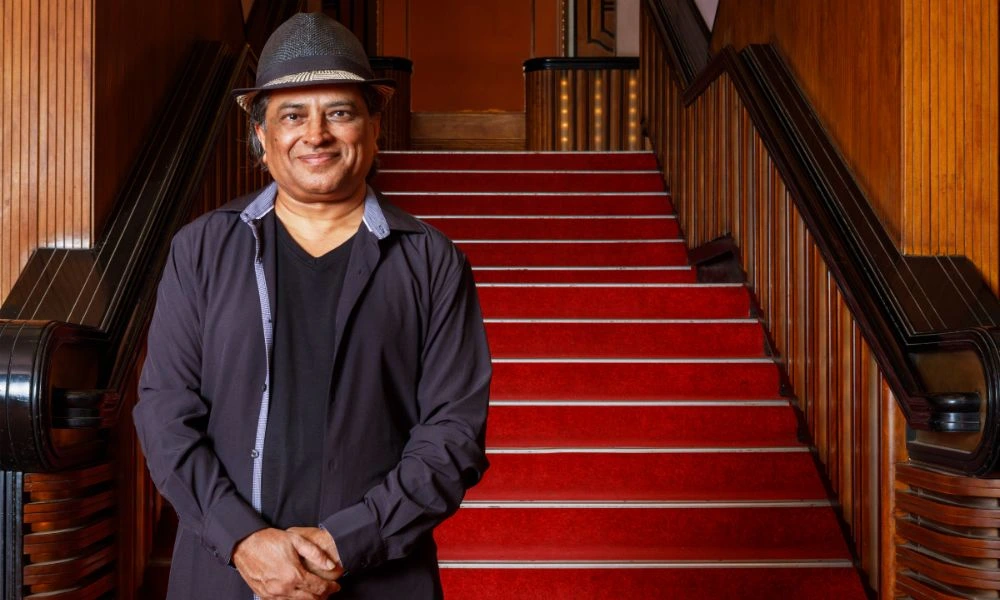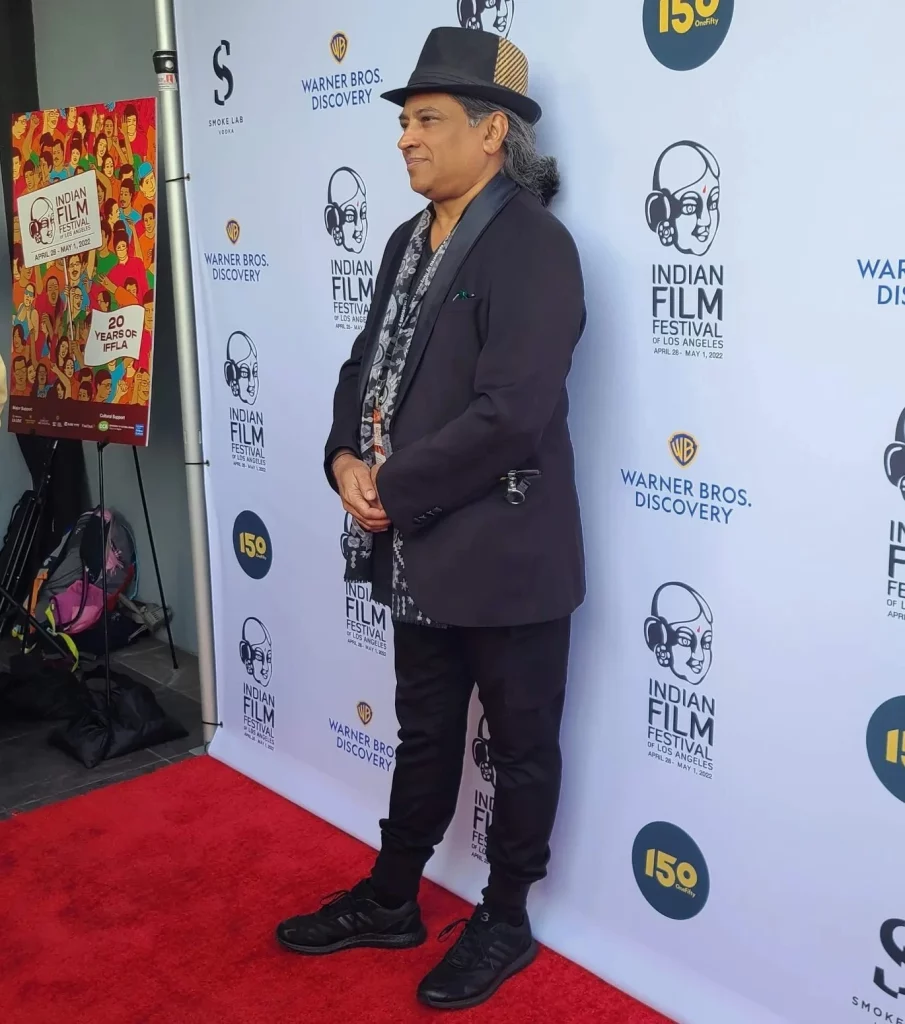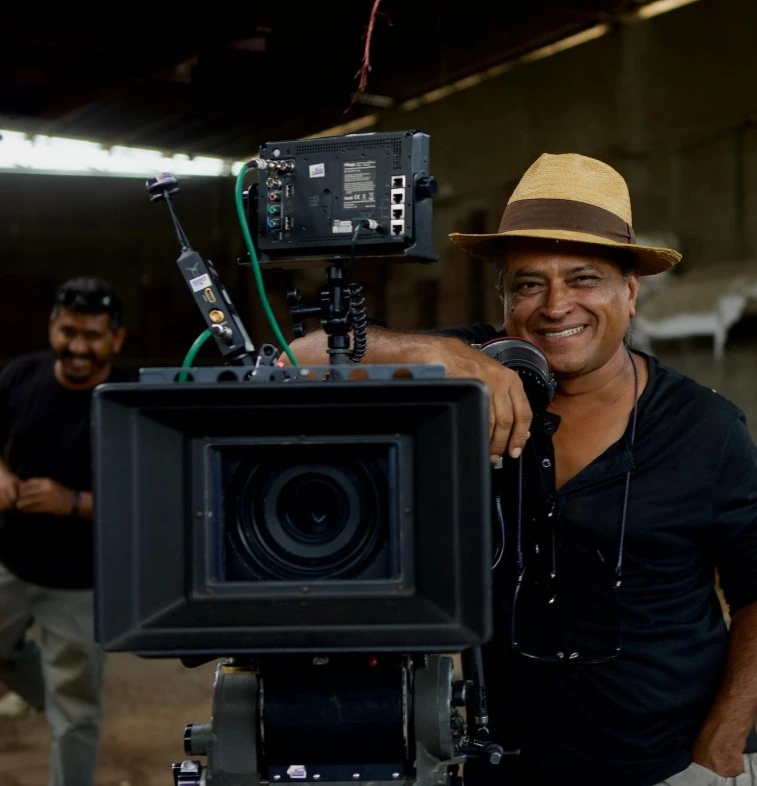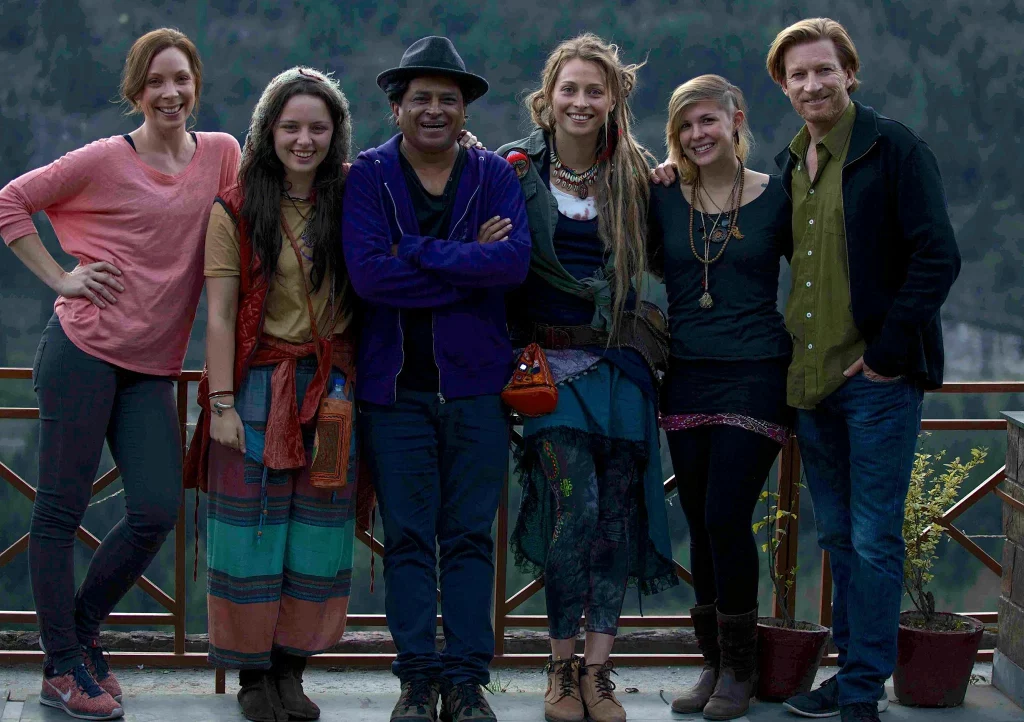(May 18, 2025) Oscar-shortlisted filmmaker Pan Nalin continues to expand his global creative footprint, becoming the first Indian-origin director to be invited as a member of the prestigious European Film Academy (EFA). This milestone comes on the heels of his earlier induction into the Academy of Motion Picture Arts and Sciences, the Oscars body, cementing his status as one of the most globally recognized Indian filmmakers of his generation.
His induction was announced on Europe Day that falls on May 9. Hailing his inclusion as a significant addition to the Academy’s international profile, EFA’s CEO Matthijs Wouter Knol and Viviane Gajewski, announced, “Together with over 5,400 other long-standing and distinguished members, now he is part of an important community of filmmakers in Europe.”

A global voice from Gujarat
Born Nalin Kumar Pandya in the remote village of Adtala in Gujarat’s Amreli district, Pan Nalin’s cinematic journey began in the unlikeliest of places selling tea with his father at Khijadiya Junction Railway Station. Averse to formal education but artistically inclined, Nalin grew up immersed in folk plays and spiritual traditions. He later studied Fine Arts in Baroda and design at the National Institute of Design (NID) in Ahmedabad, where his love for world cinema blossomed. Making wedding videos to fund his passion, Nalin eventually directed dozens of short films and documentaries.
Even in his early years, Nalin demonstrated a self-taught tenacity that bordered on obsession. Scavenging old cameras from Ahmedabad’s flea markets, he shot silent and animated shorts. Many of those, due to lack of resources, were never completed. But the seed was planted. From those humble origins would emerge a cinematic voice whose work would go on to straddle five continents.
Early global breakthroughs, Cannes and beyond
Before he was known for the 2001 independant film Samsara, Nalin’s indie filmmaking spirit drew attention from French documentary legend Yolande Zauberman. Her film Born Criminal, for which Nalin served as co-producer, was selected for Cannes. It became a pivotal moment that marked his entry into the European film circuit.
He also made short documentaries for Canal Plus on Bollywood superstars like Shah Rukh Khan and Sridevi, filmed deep in Nagaland and Tibet for global TV networks, and collaborated with BBC and Discovery. These experiences not only sharpened his visual storytelling but deeply embedded him in a network of international broadcasters and production ecosystems.
Building a career across continents
Pan Nalin’s breakthrough came with Samsara (2001), a spiritual epic co-produced by Germany, France, Italy, and India. Despite 170 rejections, the film found a backer in European producer Karl Baumgartner and eventually screened at the Toronto International Film Festival, winning awards and critical acclaim worldwide. It marked the beginning of Nalin’s reputation as an auteur whose work transcended borders.
He followed up with the documentary Ayurveda: Art of Being, a meditative ode to ancient Indian healing practices that ran theatrically for over a year in Spain and broke records in France. His next fiction feature, Valley of Flowers (2006), blended Japanese and Indian mysticism and was shot in the Himalayas and Japan. The film became an underground hit and garnered several festival accolades.
Nalin’s international presence grew further with Faith Connections (2013), filmed at the Kumbh Mela, and Angry Indian Goddesses (2015), India’s first female buddy film that resonated with global audiences. The latter premiered at TIFF and was later picked up by Netflix, amplifying his global audience.
Chhello Show and Oscar contention
In 2021, Nalin wrote and directed the semi-autobiographical Gujarati film Chhello Show (Last Film Show), a nostalgic tribute to the magic of cinema. Premiering at the Tribeca Film Festival, it won the Audience Award (First Runner-Up), followed by multiple honors across the globe, including the Golden Spike Award at Valladolid and theatrical runs in the U.S., Canada, Japan, and Italy. The film was selected as India’s official entry to the Oscars in 2022, earning Nalin a place on the Academy’s radar.

Yet the recognition came with turbulence. “When we were declared the official entry, there was a lot of backlash,” Nalin recalled in an interview. “India is a passionate country when it comes to cinema, so when their favorite films weren’t selected, millions of people were disappointed. We even had to take police protection.”
Instead of reacting defensively, Nalin chose action. “We decided not to argue. We just showed the film. We organized private screenings in Ahmedabad, Chennai, Hyderabad, Kochi. People began to see the film for what it was. Word of mouth spread and even celebrities and critics began to take notice.”
The film, now on Netflix India, has screened across continents. “It’s already traveled from Iceland to Japan to Argentina. Now it’s making its way through Latin America, South Korea, and more,” Nalin said. “We’ve gotten used to winning awards, around 20 now!”
The European Film Academy: A community of visionaries
The European Film Academy (EFA), founded in 1989 after the inaugural European Film Awards the year before, was the brainchild of legendary Swedish filmmaker Ingmar Bergman and 40 leading European directors. Over the years, it has grown into a powerful body dedicated to promoting and supporting the European film industry, with notable presidents like Wim Wenders, Agnieszka Holland, and currently, Juliette Binoche.
To be a member of the EFA is to join a network of cinematic voices shaping Europe’s storytelling identity and promoting cross-cultural collaboration. Members not only vote on the European Film Awards but also participate in shaping policy and promoting dialogue within the creative community.
For Nalin, whose body of work is steeped in transcultural storytelling, this membership is both symbolic and significant. “Cinema was born in Europe,” he noted. “Followed by many waves like Italian Neorealism, German Expressionism, French New Wave that changed global cinema forever. So, this is an immense matter of bliss and blessing, as what I do in my solitude continues to echo in multitude.”

A cinematic grammar all his own
Despite being deeply rooted in his Gujarati identity, Nalin has consistently resisted being boxed in by national labels. “Oscar is mainly an English-language award. The International Feature category is just one part. Most winners share a cinematic language familiar to voters, largely European, some from Japan or South Korea. Rarely from Africa or India,” he observed with candour.
His films, whether tackling Indian traditions or universal nostalgia, reflect a global aesthetic. “Audiences worldwide connect emotionally with cinema, no matter where they’re from,” he emphasized. His Chhello Show has been compared to Spielberg’s The Fabelmans and Sam Mendes’ Empire of Light, showcasing a trend in filmmakers turning the lens inward.
Nalin is aware of the challenges facing Indian cinema globally: “We’re probably the last country where Hollywood has such a small market share, which is less than 10%. Our structure includes songs, dances, intermissions. So, it’s harder for Academy voters to relate.”
The plan to continue straddling cultures…
Currently filming a new feature in Italy, Pan Nalin continues to straddle multiple cultures and continents. With production roots in France, Germany, Japan, the U.S., and India, and an artistic soul that defies formula, his work has garnered a global cult following.
He also remains one of the few Indian directors with sustained collaborations across top-tier international broadcasters and production houses, from Miramax and Canal Plus to Samuel Goldwyn Films and Shochiku in Japan.

Pan Nalin during one of the shoots abroad
Membership in the European Film Academy not only validates his place among global auteurs but also opens new collaborative possibilities. It affirms his enduring belief that cinema, though born in a specific geography, belongs to the world.
As he put it, “This is not just an honour; it’s a call to keep telling stories that transcend boundaries. I will keep doing what I do with solitude, passion, and belief that it will echo in multitude.”
- Follow Pan Nalin on Instagram
ALSO READ: From Garage Startup to Hollywood’s VFX Titan: Namit Malhotra leads DNEG to its 8th Oscar




U Deserve many more stage with Ur Confidential team… proud u always Mr.Nalin pandya
I am from Chalala…and ur film Last Show… touched my heart… because same platform I walked everyday…when I back from my highschool to pickup Bus at Chalala railway station…Chalala to Kerala kami…I seen this fil more than 50 times … everytime it’s touching my heart…Now I am in Latin America even I see this movie.
From Samsara to Last Film Show: Pan Nalin is a master filmmaker. Each of his movies have entertained me and nourished me so much that it has now impacted my lifestyle and wellbeing. He keeps surprising us with totally unpredictable stories and cinematic styles. The day he signs a big name to play the lead in his movies, Indian cinema will change forever! Nalin alone is capable of bringing Indian and Asian epics to the world stage. I have never met him but read and heard that he is also the most amazing human being. And I am not surprised as his work resonates deeply within me. Thank you Pan Nalin. 🙏 Duncan Fulton (UK)
The Indian Leader: Gujarat’s Pride, Pan Nalin – A True Indian Filmmaker
Pan Nalin is a true art lover. He started as a wedding photographer, worked his way up from Gujarat to Mumbai, and then from Mumbai to the world stage. He has struggled a lot in his journey. I met him in person at IFFI Goa 2024, and we had this conversation. He is truly a down-to-earth person — a real Indian filmmaker.
We both come from the same district, and he explained the definition of cinema to me in very simple language. He shared how a film’s journey begins with writing, goes through production, and continues all the way to its release. He also explained the skills required for global marketing to bring a film to the world stage.
I really liked the idea of The Global Indian online interview, where Indians travel abroad and introduce themselves on a global platform through films. Many thanks to the media staff and The Global Indian news desk for this wonderful initiative.